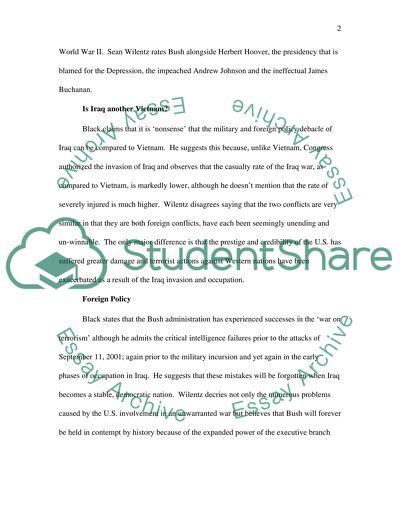Cite this document
(“'Is George W. Bush the Worst President in American History' Essay”, n.d.)
Retrieved from https://studentshare.org/miscellaneous/1540030-is-george-w-bush-the-worst-president-in-american-history
Retrieved from https://studentshare.org/miscellaneous/1540030-is-george-w-bush-the-worst-president-in-american-history
('Is George W. Bush the Worst President in American History' Essay)
https://studentshare.org/miscellaneous/1540030-is-george-w-bush-the-worst-president-in-american-history.
https://studentshare.org/miscellaneous/1540030-is-george-w-bush-the-worst-president-in-american-history.
“'Is George W. Bush the Worst President in American History' Essay”, n.d. https://studentshare.org/miscellaneous/1540030-is-george-w-bush-the-worst-president-in-american-history.


